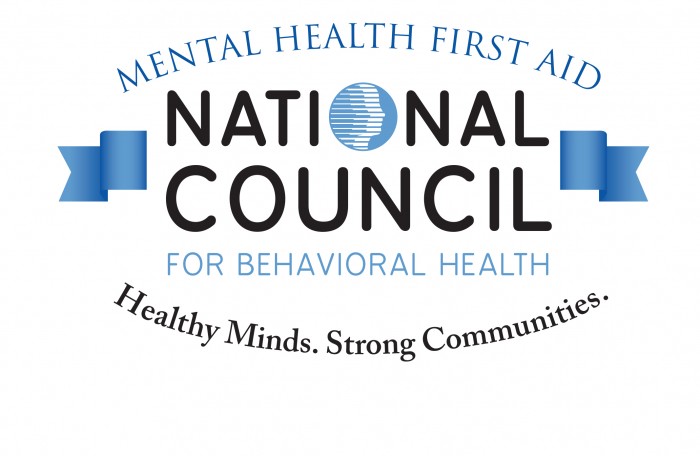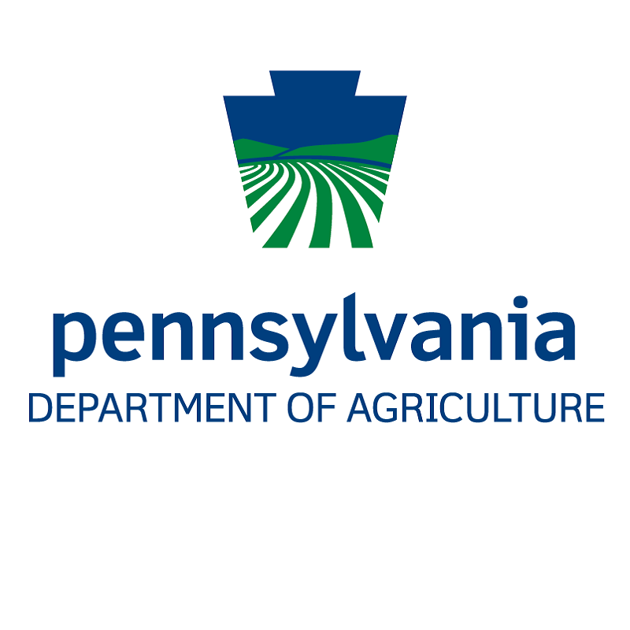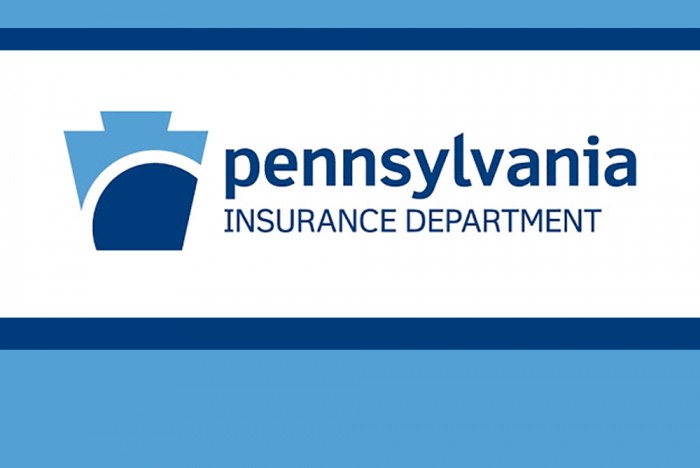Jack Phillips
Join NC’s Trauma and Resilience Equity Learning Community by August 20
Wolf Admin: Importance of Vaccinations & Updated Guidelines for New School Year
National Council’s Step by Step Guide for Provider Relief Funds
DHS, Agriculture Secretaries Remind Pennsylvanians of Food Assistance Resources
FOR IMMEDIATE RELEASE
August 7, 2020
Lancaster, PA – Department of Human Services (DHS) Secretary Teresa Miller and Department of Agriculture Secretary Russell Redding today visited Power Packs Project in Lancaster to assist with volunteer efforts keeping food available for families experiencing challenges from the COVID-19 pandemic and current economic insecurity. Power Packs Project partners with area schools in Lancaster and Lebanon counties to distribute nutritious weekend meals and recipes to families.
“Difficult circumstances created by the pandemic have not subsided, and many families around Pennsylvania still must endure challenges that come from COVID-19’s effect on food security,” said Secretary Miller. “Schools often provide at least one or two nutritious meals each day for students, but as summer continues and schools remain closed, students still need to eat breakfast and lunch. That’s where programs like Power Packs Project come in, bridging the gap when school breakfasts and lunches are not available. We know that going without meals can jeopardize children’s health and development, and the Wolf Administration is committed to doing everything it can to support families and connect them with the resources they need to get through this trying time. We are incredibly grateful to programs like Power Packs Project for their commitment to the communities they serve.”
“The Power Packs project not only provides food, but it also includes an educational recipe that can be used with the food found in the pack. This gives families the power to build nutritious, delicious meals, filling the void that exists when school is not in session,” said Secretary Redding. “We know COVID-19 has caused more people to use food banks and rely on programs like this. We estimate that in 2020, the Bureau of Food Assistance will move more than $80 million of USDA Foods through Pennsylvania’s charitable food system in all 67 counties, with the state’s allocation of The Emergency Food Assistance Program (TEFAP) funding from USDA. That is compared to 2019 when nearly $50 million was allocated to the purchase of USDA Foods. We are committed to assuring that even during difficult times, no one should go hungry.”
Power Packs empowers nearly 2,000 families with education and ingredients to create nutritious weekend meals, so their children return to school fed and ready to learn. During the school year, Power Packs children qualify for free- and reduced-price breakfast and lunch, ensuring that they will receive at least one or two nutritious meals each day. On weekends, when school lunches are not available, Power Packs fills the void by providing nutritious recipes, the ingredients for those recipes, and extras like peanut butter and cereal to see them through until Monday.
Power Packs Project has also provided summer distribution boxes in response to COVID-19 that contain shelf-stable milk and other products such as a protein, beans, cereal, peanut butter, and fresh produce when it is available. The boxes can be easily distributed to ensure that families still receive the nutrition they need.
“The COVID-19 pandemic has greatly impacted many families in our area. We have seen an increase in need, especially from individuals who have recently lost their jobs as a result of the pandemic and are facing food insecurity for the first time. Power Packs Project will continue to work to ensure families receive the nutrition they need for their children to continue to grow and develop,” said Power Packs Project Executive Director Brad Peterson.
Pennsylvanians who need help feeding themselves or their family should find and contact their local food bank or pantry through Feeding Pennsylvania and Hunger-Free Pennsylvania.
Help with buying food is also available through the Supplemental Nutrition Assistance Program (SNAP). SNAP helps more than 1.9 million Pennsylvanians expand purchasing power by providing money each month to spend on groceries, helping households have resources to purchase enough food to avoid going hungry. Inadequate food and chronic nutrient deficiencies have profound effects on a person’s life and health, including increased risks for chronic diseases, higher chances of hospitalization, poorer overall health, and increased health care costs. As the nation faces the COVID-19 pandemic, access to essential needs like food is more important than ever to help keep vulnerable populations healthy and mitigate co-occurring health risks.
With the 2020-2021 school year right around the corner, the Wolf administration also reminds families to apply for free or reduced price meals through the National School Lunch Program (NSLP). Children from families with incomes at or below 130 percent of the poverty level, and children in families receiving SNAP or Temporary Assistance for Needy Families (TANF) are eligible for free lunches. Children in families whose income is between 130 percent and 185 percent of the poverty level are eligible for reduced price lunches.
Applications for SNAP, NSLP, TANF, and other public assistance programs can be submitted online at www.compass.state.pa.us. Those who prefer to submit paper documentation can print from the website or request an application by phone at 1-800-692-7462 and mail it to their local County Assistance Office (CAO) or place it in a CAO’s secure drop box, if available. While CAOs remain closed, work processing applications, determining eligibility, and issuing benefits continues.
Applications are processed within six days on average for SNAP and once a benefit is approved, it can be immediately accessed. All Pennsylvanians who are in a difficult financial situation due to the economic challenges of this pandemic should apply to see if they are eligible for assistance.
Secretary Miller and Secretary Redding also encouraged anyone who is healthy and able to consider taking some time to support their food bank, pantry, or charitable food organization through volunteer time or monetary donations, as this time is creating an incredible strain on organizations’ volunteer efforts and resources. Anyone interested in volunteering can find organizations in need of volunteer support on the United Way of Pennsylvania’s 211 website.
For more information about food assistance resources for people around Pennsylvania impacted by COVID-19 and the accompanying economic insecurity, visit https://www.agriculture.pa.gov/Food_Security/Pages/default.aspx.
More information on Power Packs Project can be found here.
NOTE: Photos are available from this visit. Please contact the DHS or Department of Agriculture press contacts if you would like these materials.
MEDIA CONTACT: Erin James, DHS – [email protected]
Emily Demsey, Agriculture – 717-603-2056
Brad Peterson, Power Packs Project – [email protected], 717-283-3131
# # #
Insurance Department Releases 2021 ACA Plans Offering Consumers More Affordable Options
FOR IMMEDIATE RELEASE
August 7, 2020
Harrisburg, PA – Insurance Commissioner Jessica Altman today released the 2021 requested rate filings for health insurance plans under the Affordable Care Act, highlighting that the average rate requests would result in an average decrease in premiums in the individual market, allowing consumers greater flexibility and increased access to affordable, comprehensive coverage.
“Overall, Pennsylvania continues to have a healthy and competitive health insurance market and insurers are committed to providing the ACA coverage options Pennsylvanians deserve,” Altman said. “As filed, of Pennsylvania’s 67 counties, no county will lose an on-exchange insurer, and 13 counties will gain at least one new insurer. This marks the third year where Pennsylvania is seeing increased competition and decreasing or moderately increasing premiums, demonstrating that Pennsylvania’s efforts to stabilize and improve affordability in this market have been working.”
Insurers selling in the individual market filed plans requesting an average statewide decrease of 2.6 percent. Insurers that currently sell in Pennsylvania’s small group market filed plans requesting average statewide increases of 2.2 percent.
“Pennsylvania has taken the necessary steps to ensure ACA-compliant health care coverage is accessible, and continues to work towards making it more affordable,” said Altman. “Under Governor Wolf’s leadership, Pennsylvania is now switching to a state-based health insurance exchange later this year and establishing a reinsurance fund that will directly pay some of the health care costs for high-cost individuals.”
These key initiatives have driven down premium rates for 2021 and are the reason that premiums are, on average, going down in the individual market. Based on the proposed filings, the reinsurance program’s impact will make premiums 5.3% lower than they would be without this program in place, an even greater impact than the 4.6% decrease initially projected.
Other factors that are impacting these proposed rates include any anticipated costs related to COVID-19, such as COVID-19 testing and treatment costs, the anticipation of new treatments and vaccines, an increase in mental health and substance abuse treatment needs, telehealth utilization, as well as changes to provider reimbursement rates. The current economic turbulence and its accompanying impact on where people get their health insurance coverage, including a current and anticipated loss of employer coverage, is a factor as well.
The Department has observed thousands of individuals move to employer-sponsored COBRA plans during the COVID crisis. Many of these individuals may be eligible for Medicaid or may otherwise seek to enter the ACA individual market and access subsidies for the 2021 plan year, which will be a more affordable option than COBRA for many.
Rate filings for 2021 health insurance plans were submitted to the Insurance Department on May 19. The Department generally makes proposed rates public in July, but delayed the timeline this year to allow additional time to better understand the projected impact of COVID-19 on health care costs in 2021. Proposed rate changes vary by plan and region and are subject to change as the department conducts its review process. Final approved rates will be made public in the fall.
“Although the final rates are not yet approved and open enrollment is still a few months away, I urge consumers to begin thinking about their health care and insurance needs and encourage consumers to shop around when the state-based exchange platform is public,” said Altman.
Public comment on rate requests and filings will be accepted through August 21, 2020 and can be emailed to [email protected].
Details are available on the Insurance Department’s website.
MEDIA CONTACT: Lindsay Bracale, [email protected]
# # #
Resources on Social Justice and Racial Inequality
Today, the Pennsylvania Department of Drug and Alcohol Programs (DDAP) sent out resources for anyone seeking to learn more about social justice and racial inequality. The PA Care Partnership curated a collection of past webinar recordings to help deepen understanding of these vital issues. Please see the list of past webinars below:
Intersectionality Matters Cultural and Linguistic Competency Webinar
Sharon G. E. Washington is renowned for engaging diverse audiences on the complex intersections of race, historical trauma, social inequality and justice, and the impact of these factors on health outcomes. An award-winning educator, Sharon creates and instructs trainings reflecting the deliberate use of educational settings as safe spaces for healing from the social and cultural trauma of racism, sexism, homophobia, and other forms of oppression that limit the capacity of the human spirit, so that learners may use that power to heal the world.
Addressing Unconscious Bias to Create an Inclusive System of Care Webinar
Unconscious bias is defined as the automatic, implicit, and instantaneous association of stereotypes or attitudes towards an individual group of people. Participants learn how unconscious bias influences system of care success while providing pathways better to understand unconscious bias in mental and behavioral health care.
CLC Webinar Understanding Social Media Bullying, Bias, and Microaggressions PA Care Partnership
Technology has irrevocably changed the way we connect to others. Social media creates virtual spaces in which new forms of bullying arise, and in which technology-mediated communication and expression afford new ways to harm others. Participants will discuss the role and prevalence of social media bullying, bias, and microaggressions and their impact on systems of care. The webinar will explore the culture of social media and the tools for limiting bullying, bias, and microaggressions in our online worlds.
Culturally Responsive Systems of Care Often Engage The Family First
Learn about the distinct cultures of families, and the individualized supports to embracing their diversity. Building an authentic family partnership cannot be achieved when a system of care delivery is dominated by one cultural orientation. Participants will develop an approach for improving the integration of the family culture into their system of care work.
Wolf Administration Highlights Increased Efforts to Expand COVID-19 Testing Availability
Your Guide to Integrating HCV Services into Opioid Treatment Programs
The Addiction Technology Transfer Center (ATTC) Network is pleased to announce the release of Your Guide to Integrating HCV Services into Opioid Treatment Programs. The guide was designed to help build the capacity of publicly funded OTPs to integrate Hepatitis C Virus (HCV) prevention and treatment services into their programs. It may also be useful for Federally Qualified Health Centers, community and healthcare coalitions, nonprofit organizations and other substance use disorder and HCV treatment providers.
Today, a marketing email was sent out with news of the new guide, what it is, and how to access it. The ATTC Network is respectfully asking providers to help spread the word about this new resource. The ATTC Network understands providers are busy, but they would like providers to complete one of the following steps to help them get the word out:
- Forward the marketing email previously sent to your appropriate contacts (the subject line reads: “Now Available! Your Guide to Integrating HCV Services into Opioid Treatment Programs”.
- Send the attached flyer (with the same announcement and information as the marketing email) to your appropriate contacts.
- Tweet or Facebook message on your agency’s social media account, or perhaps your own social media account. Please see the attached word doc, for easy cut and paste messages for social media including the link to the guide.















